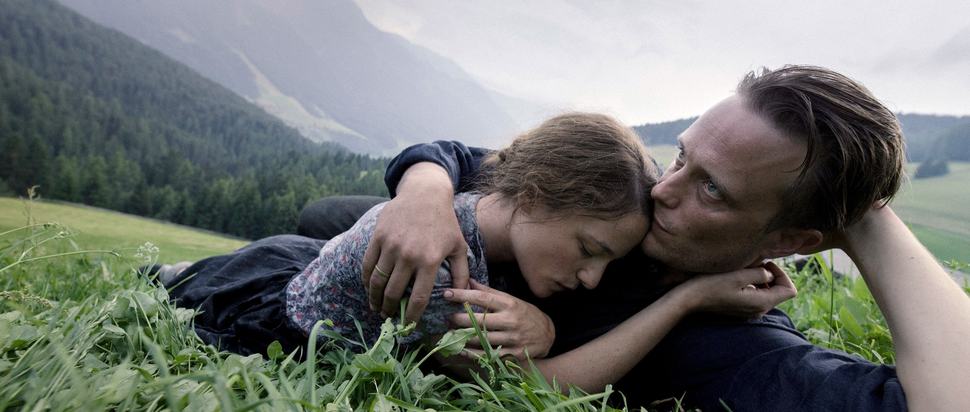A Hidden Life
It's two steps forward and one back as Terrence Malick returns with A Hidden Life. Visually and narratively it's the filmmaker's most vital work since The Tree of Life, but a lack of tension and a bizarre approach to language hobbles the movie
It’s become banal to point out that Terrence Malick’s visuals have become banal. The balletic camerawork by Mexican cinematographer Emmanuel Lubezki on Malick’s masterpiece The Tree of Life felt rapturous back in 2011. But it’s hard not to agree with the Malick agnostics that – nine years and an unprecedently prolific four films later – the reclusive filmmaker’s aesthetic in the 2010s is starting to feel a bit shopworn.
Lubezki isn’t involved in Malick’s latest, A Hidden Life – German cinematographer Jörg Widmer is behind the camera – but the three-time Oscar-winner’s swooping style and fondness for askance framing, wide lenses, natural lighting and low angles (the camera of course pointing to God) has been slavishly replicated. What makes A Hidden Life feel fresher than Malick’s recent run of work, however, is its setting. It tells the true story of Franz Jägerstätter, an Austrian farmer who refused to pledge allegiance to Hitler when he was called up to serve in the Austrian army when war broke out across Europe. “Don’t they know evil when they see it,” says August Diehl as Franz as he watches his small Alpine village of Radegund (A Hidden Life's original title) get whipped up into a frenzy by the fascists who come to town peddling Nazi propaganda.
The film opens in 1939, with archive newsreel of Hitler sweeping to power before switching to more wholesome images of Franz’s idyllic life high above the clouds with his wife and their trio of adorable moppets. There’s a little bit of toiling on the farm – harvesting, chopping wood – but mostly a lot of play. If you've seen any of Malick's films from the last decade you know the drill: luminous images of children running barefoot in the grass and twirling clinches between lovers, while philosophical musings pepper the soundtrack. Before your eyes start to roll, however, A Hidden Life breaks from Malick’s recent run in another crucial way: it has the semblance of a plot. This string of gorgeous images are building to the devastating consequences of this principled man making a stand that his neighbours and religious leaders refused to make. Franz’s chain of philosophical voiceover is balanced with devastating dialogues that could mean the difference between his life and death, and between capitulating to evil or finding salvation.
It quickly becomes clear Franz’s faith will not waver, and any suspense that the stoic farmer might bend to save his skin soon evaporates. You might not notice the lack of tension, though, thanks to Malick’s distracting approach to language, which hobbles the movie. For some reason never explained, our Austrian hero and his ostracised family speak softly in accented English; the Nazis, meanwhile, rave and rant in untranslated German, as if their words are too poisonous for our delicate ears. As well as being a pious and frustratingly naive device, it’s also as laughable as coming across an old Hollywood sword and sandals flick on TV where the baddies speak in the Queen’s English and the heroes sound like they’re from the Bronx.
Released by Disney
